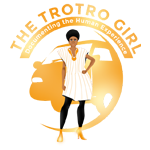The Monk who sold his Ferrari – by Robin S. Sharma
The monk who sold his Ferrari by Robin S. Sharma is a self-development book written in a story form. It was interesting to read and easy to follow. Julian Mantle, a well accomplished lawyer, is the main character of the book. His failing health caused him to go on a journey to seek clarity and direction for his life. He ended up with some monks who taught him their tried and tested ancient ways of living.
These nuggets and principles, which Julian Mantle applied to his life, transformed him in many ways. There was a shift in is outlook on life, his expectations of himself and others, his health and his relationships. The man who worked but did not take care of himself, was now well, healthy. He even looked much younger than his age. He promised the monks that he would share these principles with people in his world. With the wisdom he received from the sages of India, he returned to influence the people around him.
Here are a few nuggets from the book:
- It is costly to entertain a negative thought. How many times have we talked ourselves out of otherwise great endeavours. We listened to the negative comments of others about us or about their past experiences in that same situation. Thereby allowing them to project their fears onto us. “The last time I tried it…”; “I heard if you do not have this background, then you cannot make it…;”. Other times, it is dwelling on past failed attempts or fears of the future. Thinking negatively about ourselves or about the task at hand: “I am not good enough”, “I never get things right”. “Others are better than me” “I will never make it”, already pre-conditions our mind for failure.
Thinking positively may not necessarily remove obstacles. However, it helps us shift focus from the problem to the possible solutions and the abilities we have to surmount the challenge. This is one reason why we must avoid feeling pity for ourselves or allowing others to feel pity for us. Pity dwells on the negative. “Oh, poor you. See how you are suffering” see how difficult life is for you” …. I am not implying that we should not share our problems or struggles with others. I only mean that sometimes, negative thoughts and comments including pity draws us back and keeps us from growing as we should.
- Make use of the present time – There is no other time. This time, the one you have right now, is the only time there is. Therefore, use it! Make the most of the time at hand. If you have the opportunity to go back to school, take a short course, read a book, build a business or take up any challenge that will stretch you and expand your capacity, make use of the time you have by grabbing that opportunity.
To make good use of your time, you must intentionally avoid distractions. In our generation, distractions come in many forms. It is so easy to lose focus. Friends and family can be a source of distraction. There may be birthday parties, hanging out after work, that trip and that that visit. By the time you realise, you may have no time to focus on the goals you have set for yourself. While time with friends and family are important, you have to schedule them such that they do not take you away from other equally important ventures.
One of the commonest forms of distraction is the phone. Calls, messages, notifications, items on sale…an endless list of reasons to check the phone when we should be working. Or sometimes, just the pressure to keep posting, checking who liked or commented on our posts can consume all of our time and prevent us from truly focusing on what is important. Set focus times for each day. For example, 9am to 11am. During this time, keep your phone away.
Decide on a task to finish within that time. Take short breaks to breathe and stretch if you have been sitting or using the computer for long. However, get right back to work. You can put a “do not disturb note” on your door if you are in an office or just tell your colleagues that time is your focus time. Tell family not to call within those hours or leave an automated message that tells them these hours are for business.
By setting priorities and creating a schedule and sticking to it, you can be more present.
- Spend time with loved ones – We live in a fast-paced world where we want and get everything fast. However, relationships take time and commitment to build. We need to be intentional about building and cultivating relationships. These do not only strengthen the bonds we share but are also good for our souls. Have a good laugh with a friend, watch shooting stars with your children, reminisce about old times with past students from your school, or just take time to call your grandparents or primary school teachers. They do not seem like much but could mean a lot. There are so many ways to spend time with people. Making time to be with them, virtually or in-person, could mean a lot. Time passes by so quickly that sometimes, it becomes too late and we live with avoidable regrets. We lose friends, kids grow up so fast and leave home or we age with no friends around. Being busy out there chasing the world, forgetting to water our garden, will leave it too dry for when we need it green.
- The empty cup – Approach life with an empty cup. An empty cup represents openness and readiness to learn, to have new experiences, to see from new perspectives and sometimes, to unlearn what we have held onto for years. A full cup can no longer take new contents. New and fresh content can obly be poured into an empty cup. An empty cup in your life may mean listening to people to understand their perspectives instead of just waiting for your turn to speak; It may mean asking questions to learn something new instead of to confirm the prejudice you have against them, it may mean travelling, reading a book or taking a course. An empty cup transforms us and enables us to grow and to transform our world.
- Never regret the past, every experience offers lessons – I regret buying this item, I regret entering a relationship with that person, I regret going for that programme etc. We all have something or sometime in the past we wished we could have done or experienced differently. However, the best way to look at the past is not with regret but through the lenses of a student. Draw lessons instead of lamenting and getting stuck dwelling on spilled milk. Focus on what you can change or do differently and how you can progress going forward. We cannot change the past but we can mould the future right with the lessons of yesterday and the decisions of today.
- Try something for 21 days and it will become a habit. – The key here is consistency. Show up authentically for yourself and do so consistently. You should be consistent with the necessary steps to achieve the SMART goals you set. It may mean reading a book for 30 minutes each day, reading a bedtime story to your kids once a week, waking up 5 minutes early to pray and meditate, exercising three times a week or setting off an hour early for work to beat traffic. However, consistency may look in your life, keep at it and be faithful through it to see the results that you seek.
- In many ways, I saw how this book got me to do certain things I had been wanting to do. I began waking up at 4am to exercise, pray and read my Bible, prepare breakfast and beat traffic and so make it to work early. However, waking up at 4am and running around till 11pm was a little too much for someone starting off. I became so fatigued that I could no longer function and give off my best. I had become so enthusiastic about getting a lot done that I was neglecting rest. I had to learn not to overwork myself. Work is important and we must all make it a point to commit our all into working to produce the best results.
However, do not jeopardise the health of your mind and body as a result. Prioritise rest. A rejuvenated mind and spirit can work better. It’s like switching off or rebooting a device because it has become slow or unresponsive. Our brain and body need that resetting too. A well-rested brain and mind can produce better results. So, take that vacation, that one hour break, that walk, that nap when possible and give your soul room to reconnect.
I learnt to take one step at a time. When I finally got the rest my body needed, I could get a lot more done by simply getting rid of distractions which for me are often too many commitments at a time.
I began to view past mistakes and experiences differently. Reflections on the lessons I learnt more than on the pain or regret it brought became my focus.
I also began speaking positive things into my life especially when I faced difficulties. Situations that would have gotten me feeling negative, now got me speaking affirmations and scripture verses about my identity and my future.
I love this book and I recommend it to anyone who is looking to build their lives. Especially when they are starting from scratch after having climbed up sometime in the past. It is always possible to build back better even after a major setback. You’ve got this!

